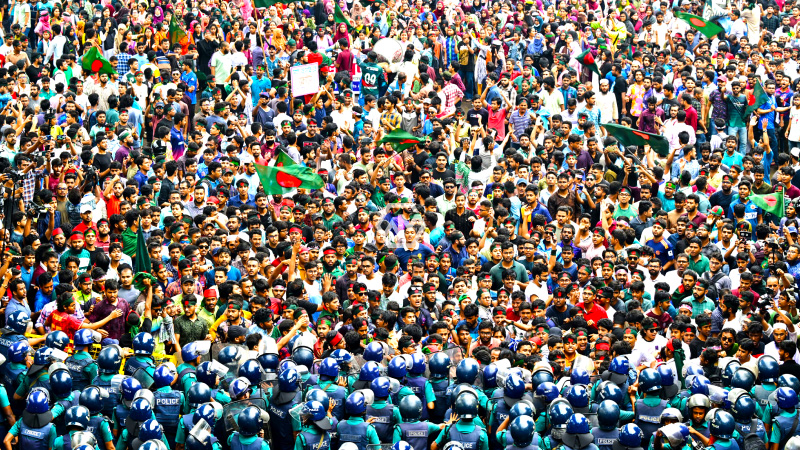- Violent clashes at Jahangir Nagar University over government job quota system.
- Protesters demand an end to reservations for veterans’ families in job allocations.
- Legal and political tensions escalate amidst ongoing demonstrations.
In Bangladesh, tensions have escalated at Jahangir Nagar University, where students clashed with police over the government’s job quota system. The protests, primarily led by students demanding an end to the 30% job reservation for family members of veterans from the 1971 war of independence, turned violent with reports of injuries on both sides.
The government, through its student wing, has been accused of using force to quell the protests, exacerbating public discontent. Meanwhile, the judiciary’s involvement has added another layer of complexity, with conflicting court rulings and legal challenges further polarizing the issue.
Bangladesh Job Quota Protests: A Struggle for Fair Opportunity
In Bangladesh, protests have intensified at Jahangir Nagar University as students rally against the government’s job quota system. Central to their demands is the abolition of a quota that reserves 30% of government jobs for the families of veterans who fought in the country’s 1971 war of independence. The demonstrations, marked by clashes with police and injuries on both sides, reflect broader frustrations over job scarcity and perceived unfair advantages in public sector employment.
The government’s response, including the deployment of tear gas and police intervention, has drawn criticism for heavy-handedness and inflaming tensions further. The issue has deep historical roots, with the Awami League, led by Prime Minister Sheikh Hasina, staunchly defending the quota as a tribute to those who fought for Bangladesh’s independence. However, critics argue that the system perpetuates nepotism and limits opportunities for merit-based employment.
Amidst the turmoil, the judiciary has intervened, initially suspending the quota system in 2018 following mass protests, only to see it reinstated recently, triggering renewed unrest. The Supreme Court‘s temporary halt on a High Court decision adds another layer of uncertainty, prolonging the standoff between authorities and protesters. The outcome of these legal battles will likely shape the future landscape of employment policies in Bangladesh, impacting thousands of aspiring graduates and reflecting broader socio-political dynamics.
The ongoing protests in Bangladesh underscore the profound challenges in balancing historical legacies with modern demands for fairness and opportunity. As the nation grapples with these issues, the outcomes in the coming weeks will not only determine the fate of the job quota system but also test the resilience of Bangladesh’s democratic institutions and their responsiveness to public sentiment.
“Today’s protests reflect our generation’s determination to secure a fair chance based on merit, not connections. We stand for equality in opportunity, not privilege.”



